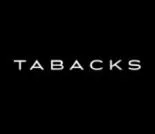In South Africa, a franchise agreement may be concluded by electronic means when certain criteria are met.
In terms of section 7(1)(a) of the Consumer Protection Act, 68 of 2008 ("CPA"), a formal requirement in terms of that "a franchise agreement must be in writing and signed by or on behalf of the franchisee". The CPA itself does not give any indication as to how these requirements are to be satisfied in the case of a franchise agreement that is concluded by electronic media and in this regard, the provisions of the Electronic Transactions and Communications Act, 25 of 2002 ("ECTA") are applicable.
In terms of section 12 of ECTA, any requirement in law that a document or information must be in writing is met if the document or information is in the form of a data message and is accessible in a manner usable for subsequent reference. Therefore, a franchise agreement may be concluded by electronic means.
Section 13(2) of ECTA provides that where the signature of a person is required by law, that requirement in relation to a data message is met only if an advanced electronic signature is used. Therefore where a franchise agreement is signed by way of an electronic signature, the signature must satisfy the requirements of an "advanced electronic signature" in terms of ECTA.
An 'advanced electronic signature' is defined as "an electronic signature which results from a process which has been accredited by the .za Domain Name Authority, as provided for in section 37 of ECTA. Section 37 provides for accreditation of authentication products and services in relation to electronic signatures. In other words, a signature will only satisfy the requirement of an advanced electronic signature id it is supported by an authentication product or service accredited in terms of ECTA. It therefore follows that, for a franchise agreement to be considered to have been validly signed, the signature of the franchisee must be authenticated by means of an accredited authentication product or service.
Originally published by Tabacks, September 2020
The content of this article is intended to provide a general guide to the subject matter. Specialist advice should be sought about your specific circumstances.
We operate a free-to-view policy, asking only that you register in order to read all of our content. Please login or register to view the rest of this article.

